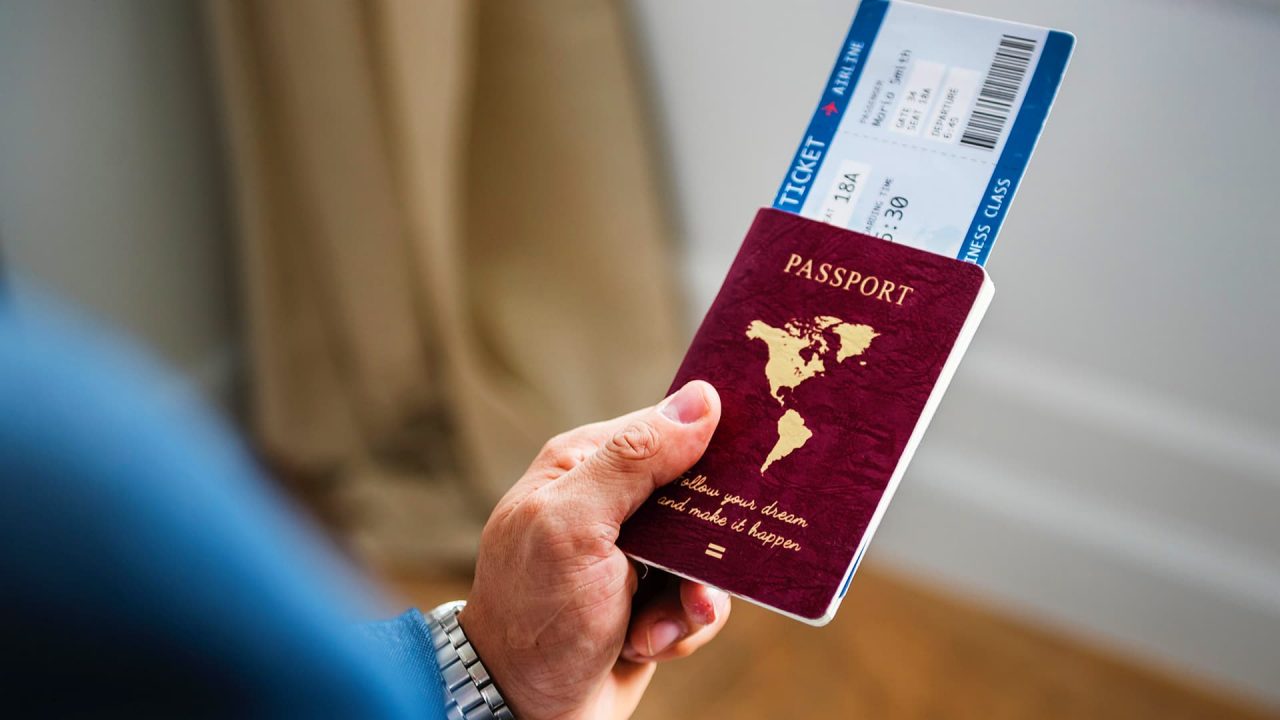Confused about the different Portugal visa types? In this article, you’ll find everything you need to know about the different types of visas available for Portugal that you may need to legally enter, visit, or live in the country.
As you will see, there are many types of Portugal visas Here, we will provide you with a rundown of each, focusing a little more on the visas that may be used by those who plan on moving to Portugal. This article is for you if you want to:
- Invest in Portugal
- Start a business in Portugal
- Work as a freelancer in Portugal
- Simply enjoy a good quality of life
We will also talk about the costs of these visas and where you can apply for them.
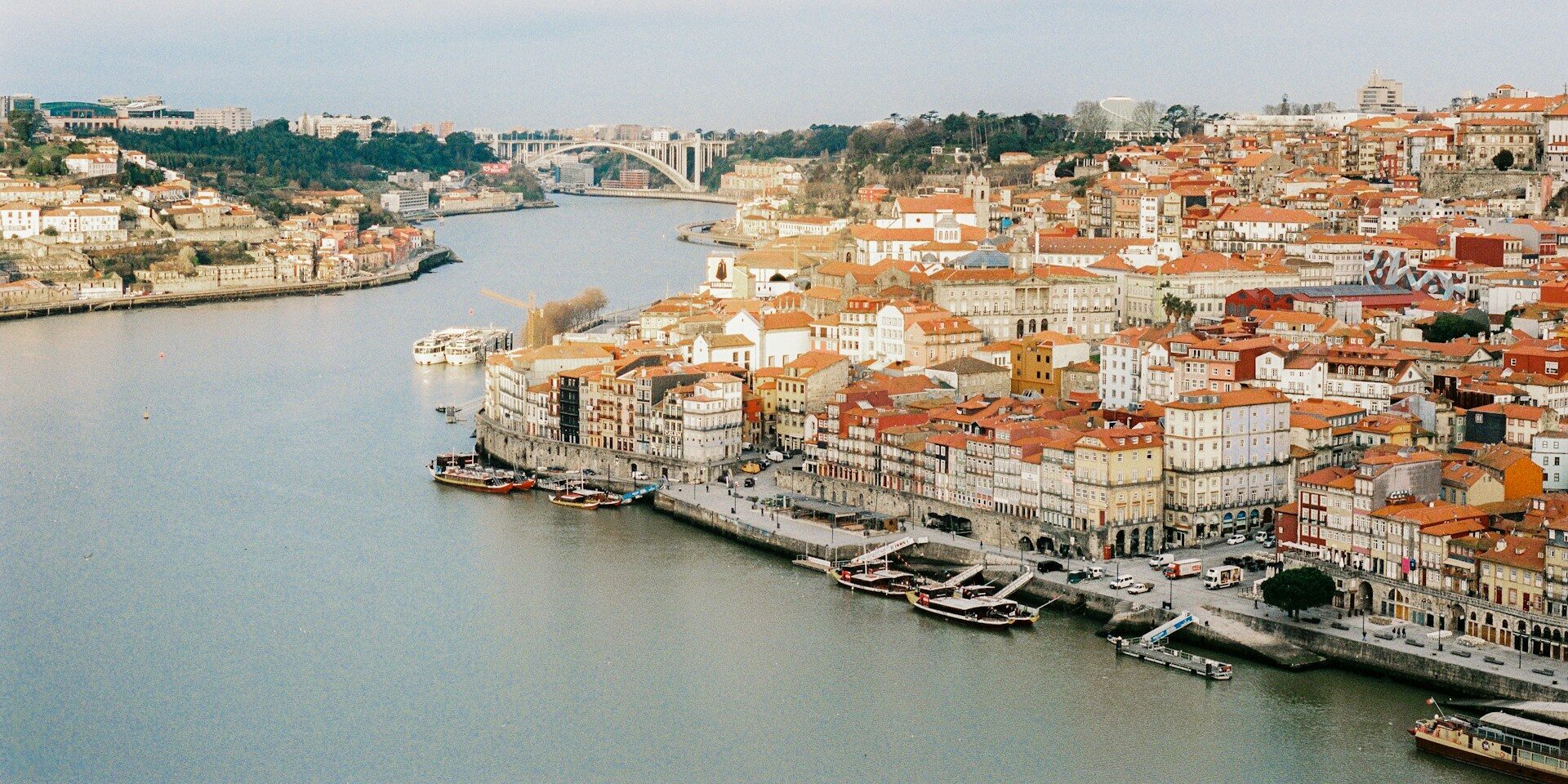
Who needs a Portugal visa?
Do you need a Portugal visa for US citizens? What about citizens from the UK or South Africa? What about citizens holding European passports? Well, we have some good news for you. Did you know Portugal is one of the easiest countries to travel to? Due to the multiple diplomatic deals Portugal holds with many, many countries, it is quite easy for citizens from all over the world to come to Portugal or for Portuguese citizens to visit other countries.
European passport holders don’t need a visa to visit Portugal
First, let’s just let clarify that nationals holding a valid EU/Schengen Area/Switzerland national ID do not need any kind of visa in order to enter Portugal. That’s one of the benefits of being a member state of the EU/Schengen Area.
Being exempt from holding a visa when entering Portugal means you have up to 90 days in a 180 day period to come to the country and enjoy it without any problem. These 90 days may be used for tourism, family visits, seasonal work, transit, etc.
Please note, that if this is your case and you wish to extend your stay you may need to visit Agency for Integration, Migration, and Asylum – AIMA (the agency overseeing foreign citizens wishing to reside in Portugal) or a câmara municipal (municipal governing body) in your area to register yourself as a resident in Portugal.
Conclusion (TLDR): If you have a European passport and live in one of the Schengen countries, you don’t need a visa to travel to Portugal. But there are other countries that benefit from a visa-free travel policy with Portugal. For instance, those who hold a Brazilian, UK, or USA passport can travel to Portugal without needing a Portuguese visa.
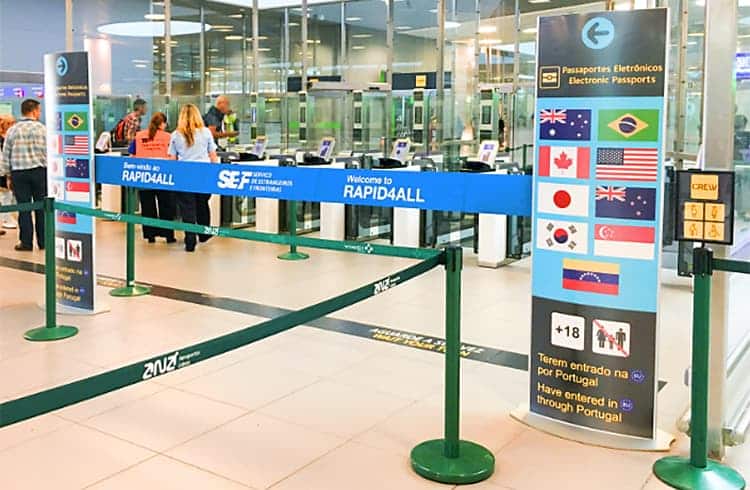
List of countries that have a visa-free deal with Portugal
Citizens from the following countries can visit Portugal without a visa, if holding a valid passport:
- EU/EEA Countries:
- Austria
- Belgium
- Bulgaria
- Croatia
- Cyprus
- Czech Republic
- Denmark
- Estonia
- Finland
- France
- Germany
- Greece
- Hungary
- Ireland
- Italy
- Latvia
- Lithuania
- Luxembourg
- Malta
- Netherlands
- Poland
- Romania
- Slovakia
- Slovenia
- Spain
- Sweden
Non-EU Countries:
- Albania
- Andorra
- Antigua and Barbuda
- Argentina
- Australia
- Bahamas
- Barbados
- Bosnia and Herzegovina
- Brazil
- Canada
- Chile
- Colombia
- Costa Rica
- Dominica
- El Salvador
- Fiji
- Georgia
- Grenada
- Guatemala
- Honduras
- Israel
- Japan
- Kosovo
- Malaysia
- Mexico
- Montenegro
- New Zealand
- Nicaragua
- North Macedonia
- Panama
- Paraguay
- Saint Kitts and Nevis
- Saint Lucia
- Saint Vincent and the Grenadines
- Samoa
- San Marino
- Serbia
- Singapore
- South Korea
- Taiwan
- Trinidad and Tobago
- United Arab Emirates
- United Kingdom
- United States
- Uruguay
- Vanuatu
- Vatican City
Please take into consideration that even though there’s a visa-free policy, other requirements may be necessary. You should check your situation with your Portuguese Consulate or Portugal Embassy in your country. All other countries need a Portuguese visa including:
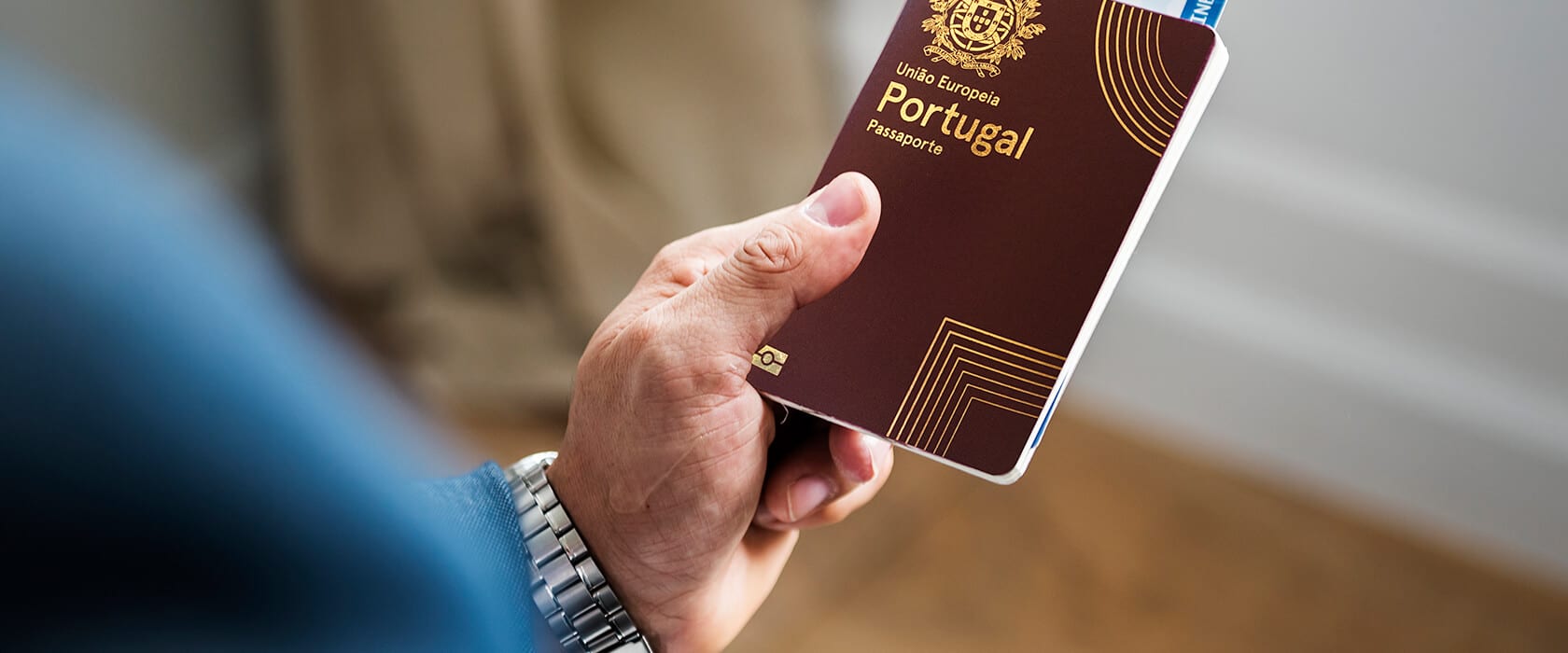
Types of Portugal Visas
We get that all the different visas may seem a little confusing, but you don’t need to worry. Here, we’re going to break it down and simplify it for you. We’re going to jump into t the different types of visa Portugal offers.
Portuguese visas can be categorized according to the reason you want to visit the country and depend on how long you wish to stay.
The most common types of Portugal visas are
- Short Stay visa (Schengen Visa or tourist visa)
- Temporary Stay Visa (National Visa)
- Residence visa or Type 1 visa
- Job Seeker visa
- Business visa
- D1 Visa (Work visa)
- D2 Visa (Entrepreneur visa)
- D3 Visa (highly qualified activities individuals visa)
- D4 Visa (student visa)
- D5 Visa (study and research visa)
- D6 Visa (family reunification visa)
- D7 Visa (passive income visa)
- D8 Visa (digital nomad visa)
- D9 Visa (Portugal Golden Visa)

Short Stay Portugal Visa
Short Stay Portugal Visa, also known as a Schengen Visa or Tourist visa, is an authorization issued by one of the member states of the Schengen Area for the purpose of airport transit, traveling within the Schengen Area, or an intended short stay in Portugal or one of the other countries of the Schengen Area. Keep in mind that even if you get the Schengen Visa to stay in Portugal, you may have to go through border control upon arrival and you might have to prove that you have enough money with you in order to sustain yourself for the time you are in Portugal.
Types of Schengen Visa
- Airport transit visa: You get to enter the Airport Space and get from one flight to the other without actually entering the Schengen Area.
- Seasonal work visa: this applies if you will be working for less than 90 days in Portugal in previously approved fields of work. This includes the cultural, sports, film crew or religious purposes visa.
- Short-term visa: The short-term visa is a visa that allows you to enter the Schengen Area one or multiple times, in the period of 90 days within 180 consecutive days. This will include a visa for family visits.
The application fee for the Schengen Visa is €90.
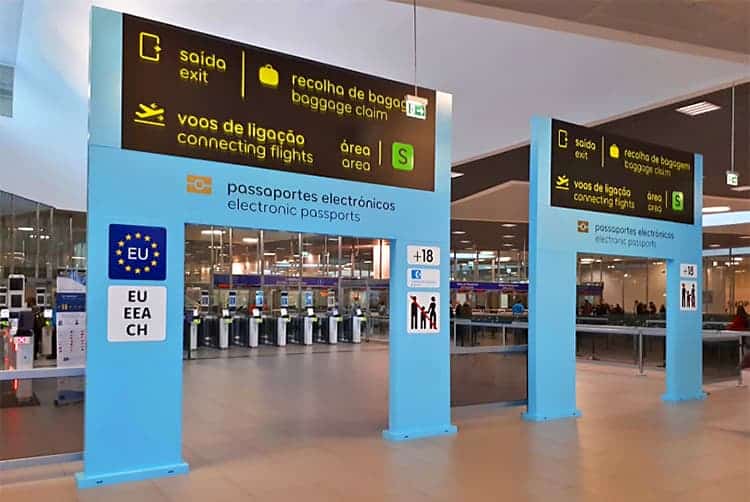
Temporary Stay Portugal National Visa
The National Visas are classified into two types:
Temporary Stay Visa
Portugal Temporary Stay Visas are short-term visas designed for those who wish to stay in Portugal for a period longer than a typical tourist visa but less than one year. Foreigners can enter and stay in Portugal as many times as they need with Temporary Stay Visas within this time period. You can qualify for Temporary Stay Visas for the following purposes:
- Work
- Study and research
- Professional training, internship, or volunteer work
- Health (medical treatment visa)
- Youth mobility
- Religious purposes
- Exceptional reasons
Residence visa or Type 1 Visa
The Portuguese residency visa is valid for four months. Residency visas allow you to stay in Portugal a maximum of two times in order to request a temporary residence permit. The reasons that may justify your residency visa may have to do with the following:
- Work
- Study and research
- Professional training, internship, or volunteer work
- Family reunification
- Fixed residency or permanent residence permit
The application fee for Temporary Stay Visas is €90.
3. Job Seeker visa
This visa allows single entry into the country for foreigners seeking employment in Portugal. It is issued for 120 days but can be extended by up to 60 days.
The application for the Job Seeker visa is €75.
4. Business visa
This visa is issued for business-related activities, such as business meetings or conferences. It is issued for the exact dates you plan to be in the country but limited to 90 days within a 180-day period.
The application for the Business visa is €90.

5. D1 Visa (work visa)
As the name implies, this is the visa you can apply for if you have been offered a job from a Portuguese employer. The work visa is typically issued for one year, after which it can be renewed. It can also lead to a residence permit to live and work in Portugal on a longer-term basis.
The application for the work visa is €90 and an additional fee of €82 will be due to AIMA, along with a reception and analysis fee of €95.
6. D2 Visa (startup or entrepreneur visa)
The D2 Visa also goes by the startup or entrepreneur visa and is one of the Portugal work visa types aimed at those wanting to start a business in Portugal or purchase an existing Portugues company. To qualify, you’ll need to make sure you have enough money to sustain yourself for one year and develop and run your business while in Portugal. The visa is valid for four months but can be extended up to two years with an application for a residence permit.
The application for the entrepreneur visa is €90.
7. D3 Visa (highly qualified activities individuals visa)
The D3 Visa is an exciting type of visa for Portugal meant to attract as many brilliant minds as possible and get them into the country from all over the world. If you have a specialized skill, an advanced degree, or substantial professional experience, and have been offered a job in a highly qualified position, for example, in technical positions, scientific research, or in managerial roles, you could qualify for this visa.
The application for the D3 Visa could vary depending on each country but is usually €90. You’ll also need to pay €85 for a residence permit.
8. D4 Visa (student visa)
The D4 Visa is for you if you will be studying full-time in Portugal, or if you will be doing academic research or vocational training. You will need to be enrolled in a higher education program (bachelor’s, master’s, or doctoral degrees) at a recognized Portuguese institution. This visa is issued for a minimum of 90 days.
The application for the student visa is €75 for the short-stay student visa and €90 for the long-stay student visa.
9. D5 Visa (study and research visa or long-stay student visa )
The D5 Visa, similar to the student visa, is also for those who have been accepted into a higher education institution but accommodates a longer study term and will be valid for the entire length of the academic activities. You will need to be enrolled for a research program or in a highly qualified academic program to qualify for this one, such as teaching at a university or participating in scientific research.
The application fee for the D5 Visa is €90.
10. D6 Visa (family reunification visa)
The family reunion visa is a temporary residence permit you can get if you have family members who are Portuguese residents. Your residence permit will be valid for the same amount of time as your family member who is a resident in Portugal. Qualifying family members include spouses, partners recognized by law, dependent children of the resident or resident’s partner, and minor siblings of the resident.
The application fee for the family reunification visa is €90.
11. D7 Visa (passive income visa)
One of the more popular Portugal D visa types among retirees, the D7 Visa will allow you to move to Portugal and live off the income you get from your retirement fund or any investment you have abroad. For this visa, you will need to show proof of means in the form of passive income.
The application for the D7 Visa is €90 and the residence permit fee is around €160.
12. D8 Visa (digital nomad visa or tech visa)
This is one of our favorites! The digital nomad visa, or tech visa, is for remote workers who are employed by companies outside of Portugal, freelancers who offer services to clients worldwide, and tech professionals involved in start-ups or technology-related ventures who wish to reside in Portugal while managing their remote business. To qualify for this visa, you’ll need to prove that you can support yourself by earning at least four times the minimum wage in Portugal, which is at least €3,280.
The application fee for the D8 Visa is €93, and you’ll also need to pay a residence permit fee of €170.
13. D9 Visa (Portugal Golden Visa)
The Golden Visa is one of the Portugal immigration visa types designed to attract investors from all over the world and have them investing in Portugal’s economy and culture. This option is fantastic for those who have a lot of capital available to invest in Portugal. At least one of the following Portugal visa requirements must be met:
- Investment of at least €500,000 in scientific research in Portugal
- Investment of at least €250,000 in Portuguese arts, culture and heritage
- Investment of at least €500,000 into a Portuguese investment fund
- Investment of at least €500,000 in a business in Portugal, combined with creating five jobs or maintaining ten
- The creation of at least ten job positions in Portugal
If eligible, you will get the temporary residency permit and all the advantages that come with it, such as being able to apply for Portuguese citizenship or a permanent residence permit after five years (a benefit of living in Portugal with any of the national visas on this list).
Besides being able to apply for Portuguese citizenship, if you live in Portugal for less than 183 days per year, you are exempt of paying any taxes on any worldwide income. Find out more about the Golden Visa scheme here.
The application fee for the Golden Visa is €605.10, with a residence permit fee of €6,045.20 and a renewal fee of €3,023.20 (expect to renew twice in a five-year period).

How much time does it take to process Portugal visas?
Well, depending on the type of visa, you should be prepared to wait up to 90 days, with some visas possibly taking longer. During these 90 days, your file will be evaluated and you may receive a notice calling you in for an interview. After that interview, if everything goes well, you will have your visa. When that happens, we wish you enjoy your stay and have an epic time in Portugal!
Did you find this information about the different types of visa Portugal has useful? Do you have any doubts or wish to find out more Portugal’s types of visas? Feel free to leave a comment or a question below.
Frequently Asked Questions about Portuguese Visas
What are the different types of visas available for Portugal?
The different types of visa Portugal offers include:
- Short Stay visa (Schengen Visa or tourist visa)
- Temporary Stay visa (National Visas)
- Residence visa or Type 1 Visa
- Job Seeker visa
- Business visa
- D1 Visa (Work visa)
- D2 Visa (Entrepreneur visa)
- D3 Visa (highly qualified activities individuals visa)
- D4 Visa (student visa)
- D5 Visa (study and research visa)
- D6 Visa (family reunification visa)
- D7 Visa (passive income visa)
- D8 Visa (digital nomad visa)
- D9 Visa (Portugal Golden Visa)
How to apply for a Portugal Golden Visa?
If you are not too familiar with the application process for the Portugal Golden Visa, it is best to work alongside Portugal immigration experts like Global Citizen Solutions, who can guide you through the process seamlessly.
What are the eligibility criteria for a Portugal D7 Visa?
You’ll need to:
- Be a non-EU national
- Have enough funds to support yourself
- Have a clean criminal record
- Have suitable accommodation in Portugal,
- Be able to spend at least 16 months in Portugal during the first two years
What are the requirements for a Portugal Entrepreneur Visa?
In order to stay in Portugal through the Entrepreneur Visa, you will need:
- Proof that you have enough financial resources to sustain yourself during your time in Portugal
- A solid business plan that proves your business is viable
- A clean criminal record
- Valid travel medical insurance
- Proof of accommodation in Portugal
What is the cost of a Portugal Visa application?
The general cost to apply for a visa is €90. However, additional fees may apply depending on the visa you are applying for.
What are the visa options for retirees in Portugal?
The D7 Visa is a popular Portuguese visa among retirees, because retirement income qualifies as passive income under the requirements. The D2 Visa for entrepreneurs and the Portugal Golden Visa are also good options.
What are the common reasons for Portugal visa rejection?
Common reasons a visa is rejected are if you do not provide all the information required in the application or if the information is inaccurate. Also, if you cannot provide proof of accommodation in Portugal or sufficient funds to sustain yourself while staying in the country, your application may also be rejected.
What are the visa options for investors in Portugal?
The Portugal Golden Visa is the most popular option for investors looking to obtain residency visas in Portugal.
What is the Portugal Temporary Stay Visa?
The Portugal Temporary Stay Visa is a short-term visa designed for non-EU/EEA/Swiss nationals who wish to stay in Portugal for a period longer than a typical tourist visa but less than one year.
It is ideal for those coming for specific purposes like short-term work assignments, study programs, training, medical treatments, or other temporary stays that do not require long-term residency.
Can I apply for a Portuguese visa without a job offer?
Yes, there are many visas you can apply for without a job offer. For example, the D7 Visa only requires you to have sufficient passive income, a D4 Visa is available if you are enrolled in a study program at a recognized Portuguese institution, and the Portugal Golden Visa requires an investment into the country’s economy to be able to qualify.

